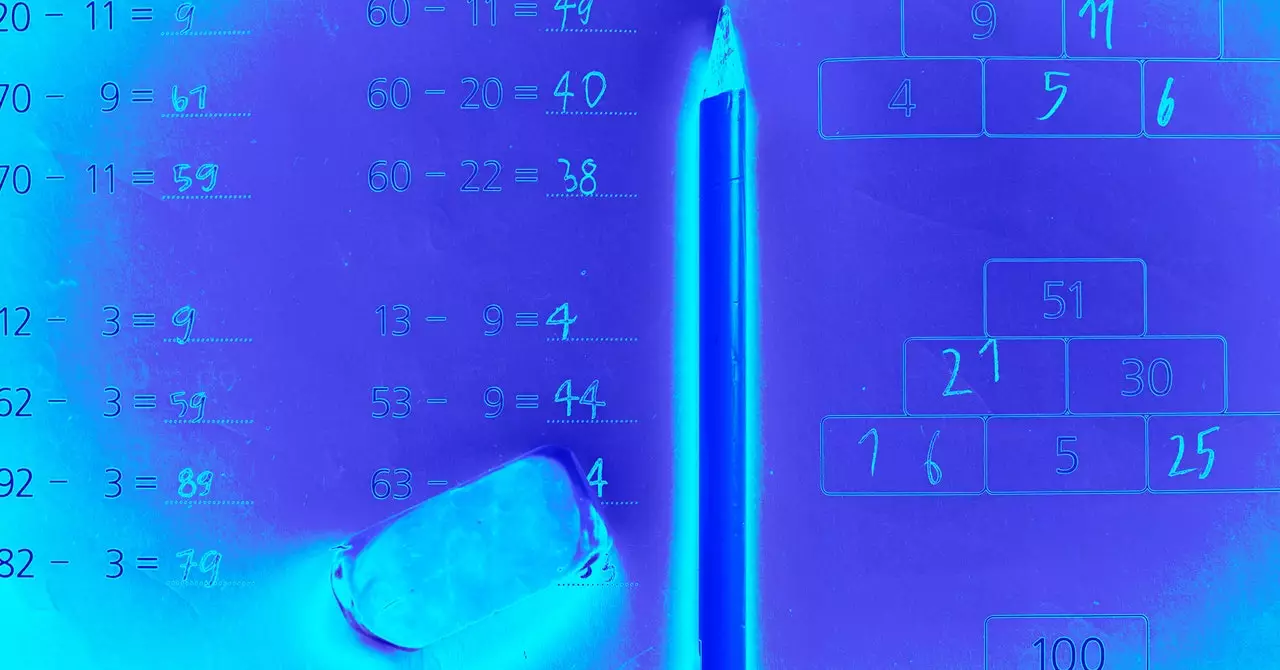The integration of artificial intelligence (AI) technology in education has brought about significant changes in the way students complete their homework assignments. From writing essays to solving math problems, AI-powered apps have made it easier for students to navigate through their academic tasks. One such popular app is Gauth, owned by ByteDance, which has gained immense popularity among high school and college students for its ability to assist in math homework.
Gauth, initially launched with a focus on mathematics, has expanded its capabilities to cover other subjects such as chemistry and physics. With millions of downloads and a high rating on both the Apple App Store and Google Play Store, students have embraced Gauth as a valuable tool for completing math assignments. The app operates by allowing students to capture an image of a math problem, whether in print or handwritten form, using their smartphone. The AI model within the app then generates a step-by-step guide on how to solve the problem, often providing the correct answer as well.
In testing Gauth on various high-school-level algebra and geometry homework samples, the AI tool demonstrated decent performance, earning users an average grade of a low B or high C. However, it faced challenges with more complex math problems, such as graphing questions and advanced calculus, where accuracy tended to diminish. While Gauth may not deliver top-tier results for students tackling upper-level mathematics, it remains a viable option for those seeking assistance with introductory math concepts.
The Future of AI in Math Education
Despite current limitations, researchers are diligently working towards enhancing AI’s capabilities in solving math equations accurately. Recent advancements in large language models, such as Google DeepMind’s AlphaProof, have shown promising results in tackling math problems. Furthermore, AI homework apps like Gauth are continuously evolving to cater to the educational needs of students at various learning levels. As AI technology progresses, it is expected to play a more significant role in enhancing math education and providing students with valuable learning resources.
Ethical Considerations and Academic Integrity
While AI homework apps like Gauth aim to assist students with challenging problems and enhance their learning experience, ethical concerns around academic integrity arise. Gauth positions itself as an AI study tool rather than a cheating aid, emphasizing the importance of using the app responsibly. The company’s “Honor Code” encourages users to adhere to their school’s guidelines and not misuse the app for unethical practices. Despite these measures, the temptation to misuse AI tools for academic gain remains, prompting the need for ongoing discussions on ethical AI usage in education.
As AI continues to revolutionize the education sector, the integration of AI-powered tools like Gauth in math homework assistance signifies a shift towards more interactive and personalized learning experiences. While challenges exist in the accuracy and performance of current AI models, ongoing research and development efforts suggest a promising future for AI in math education. By fostering a balance between technological advancement and ethical considerations, educators and students can leverage AI tools effectively to enhance learning outcomes and academic success.


Leave a Reply